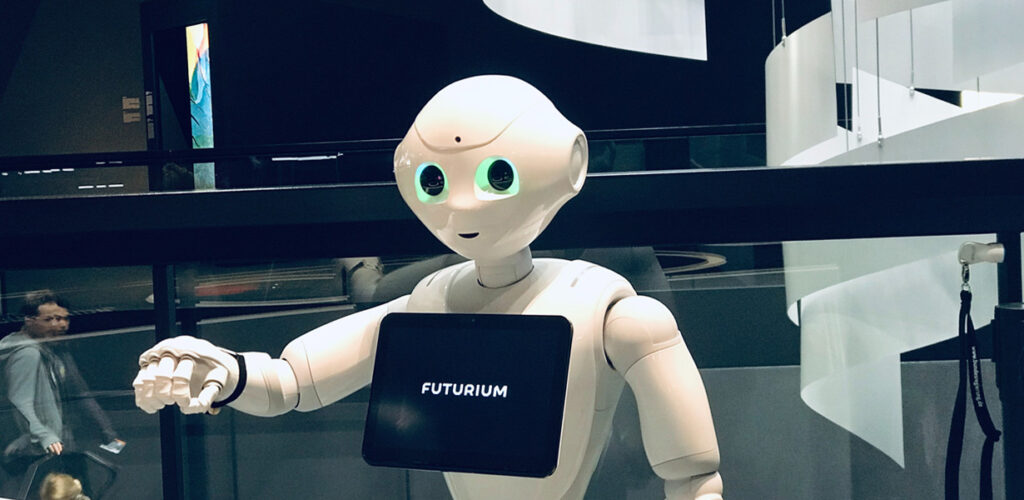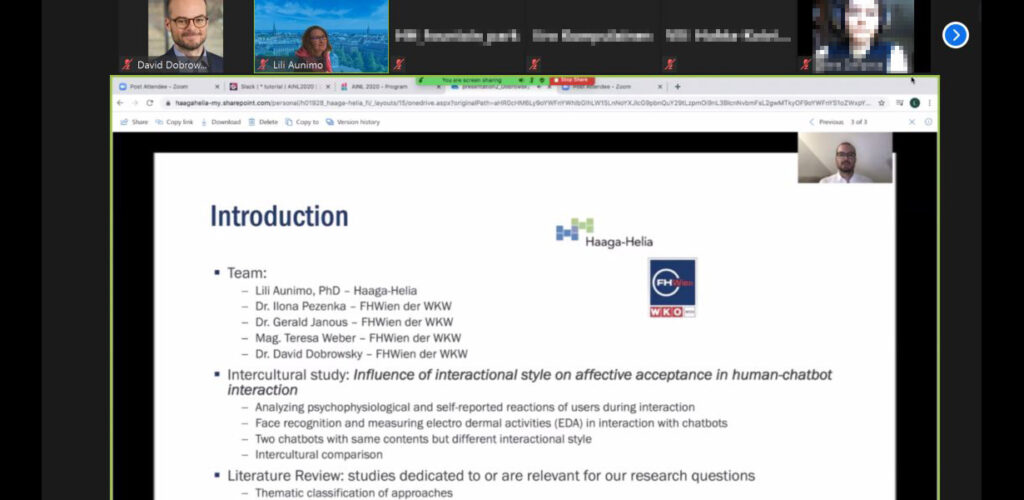In cooperation with Haaga Helia University, Helsinki, researchers and lecturers from FHWien der WKW’s Department of Communication are investigating the effect of chatbots on users from a communication science perspective.
Have you ever had an online conversation with “Anna” or “Sven” from the service department? In the nice virtual chat they politely give competent answers to your questions, but there is something strange about it. Now you get it: This is not a human, this is a chatbot!
Ilona Pezenka, Teresa Weber, Gerald Janous and David Dobrowsky from the Department of Communication of FHWien der WKW and Lili Aunimo from Haaga Helia University, Helsinki, explore the influence of communication style on the acceptance of chatbots users. In the course of their joint study they composed a literature review which was presented by David Dobrowsky and Lili Aunimo at the “AINL: Artificial Intelligence and Natural Language Conference” on October 7, 2020.
When an artificial counterpart seems too human
Chatbots enjoy special popularity on websites with high customer service need. They provide, like a human counterpart, automated answers to the “Frequently Asked Questions” and thus help to increase customer satisfaction through simulated conversations. However, the humanization of the artificial interlocutor does not only provide positive reactions from the users. Rather, they place higher expectations on the interaction, which can lead to lower acceptance if not fulfilled. If the conversant is recognized as a simple bot, then the reaction is often more positive.
Whether artificial or not: Friendliness and personalization always score
Even if artificially created, chatbots have to adhere to the “netiquette” of human interaction. Thus a minimum of friendliness and personal address must be programmed even for the simplest chatbot. In addition, chatbots score points – analogous to their human counterparts – with up-to-date information, quick answers and understandable language.
Despite everything: “Human” characteristics increase trustworthiness
Even if users unmask the chatbot as an artificial counterpart, the reactions to external stimuli, such as perceived expertise or gender assignment by a female or male name, remain approximately the same. The personal characteristics of the users play a further role. Users with an affinity for technology find chatbots more trustworthy than others.
Would you like to learn more about the Chatbot study? Please contact David Dobrowsky, Head of Competence Center for Marketing for further information:
>> Click here to contact the Competence Center for Marketing

